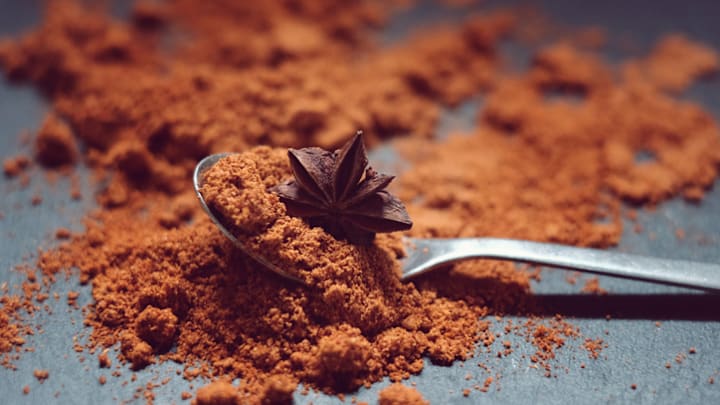If it seems as if pumpkin spice season comes earlier each year, you’re not imagining things. Pumpkin spice lattes have officially arrived at Starbucks. But before you order a cup, drink this in: The flavor can be composed of more than 300 elements, and pumpkin usually isn’t one of them (though Starbucks is advertising its current PSL as ”made with real pumpkin”).
So just what is pumpkin spice if it’s generally not pumpkin? Most recipes include flavors of cinnamon, nutmeg, allspice, ginger, and vanilla, but not every incarnation of the concoction is the same, according to Dr. Kantha Shelke, a food scientist and longtime member of the Institute of Food Technologists.

You May Also Like:
- 15 Things to Do With Pumpkins (Besides Carve Them)
- The First Recipe for “Pompkin” Spice Dates Back to 1796
- The Science Behind Our Pumpkin Spice Obsession
As Shelke explains, many pumpkin spice products may not actually contain the spices themselves. Instead, flavor companies add skillfully designed compounds that mimic the taste of pumpkin pie, including:
- Cinnamon flavor: Cinnamic aldehyde
- Clove or allspice flavor: Eugenol
- Nutmeg flavor: Terpenes
- Vanilla flavor: Vanillin
Each chemical is reviewed by the U.S. Food and Drug Administration and approved at concentrations of about 20 to 50 times the normal consumption level. And even though the full flavor contains 340 compounds, combining only 5 to 10 percent of those molecules in a mix is enough to trick our brains into thinking, “Mmmm, tastes just like Thanksgiving!”
But beware: Attempting to recreate the magic of pumpkin spice in the average kitchen isn’t always as easy as pie. With only the spices available at a supermarket, the final product will likely taste more like chai than the seasonal treat found on professional menus. “Pumpkin spice isn’t set in stone,” Shelke says. “Everyone has their secret recipe.” If you don‘t feel like heading to Starbucks to start pumpkin spice latte season, you can try to make your own version at home.
A version of this story originally ran in 2018; it has been updated for 2025.
